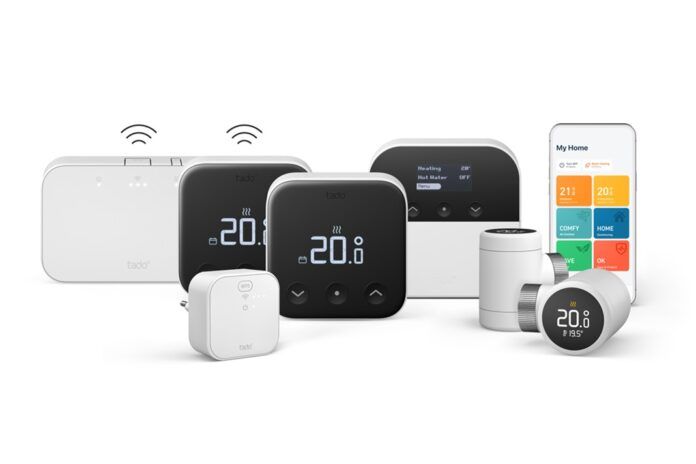
tado° is set to launch its new tado° X product range at the beginning of November.
According to a company statement, the new tado° X range of Smart Thermostats and Sensors, Smart Radiator Thermostats and Heat Pump Optimizer X will have financial savings of 19% on average and control over heating bills.
tado° X runs on Matter over Thread to “integrate seamlessly” with other smart home products, it noted. Its Thread mesh network also offers greater radio range and coverage for larger properties.
The full range of new tado° X products include the Wireless Smart Thermostat X, the Wired Smart Thermostat X, the Smart Radiator Thermostat X, the Wireless Temperature Sensor X, the Heat Pump Optimizer X and the Bridge X (Thread border router).
Customers can either use a Bridge X or the Wireless Smart Thermostat X to establish their own Thread mesh network for device communication, or use a third party Thread border router such as Apple HomePod.
Christian Deilmann, tado° CPO and co-founder, said: “Our latest generation of products are another step on tado°’s mission to make it simpler for millions of homes to decrease their energy consumption and bills without compromising on comfort.
“A survey of tado° customers in the UK revealed that 84% of them do not expect energy prices to fall to pre-Ukraine invasion levels within the next few years, while two-thirds are more aware or worried about their heating bills than they were five years ago.
“October’s price cap rise of 10% is unwelcome news for all households and another indicator of why it is important to take control of your heating consumption and bills. With savings of 19% on average in the UK, the new tado° X products will pay for themselves within a few months and then go on to save customers money as well as cutting their carbon footprint.
“The innovations we have created in our tado° X products bring simplicity for smart heating to life. In the past smart thermostats were largely adopted by those focussed on smart tech but tado° X makes these devices more accessible to many more people and will have a bigger impact on bills and the renewable energy transition.”
